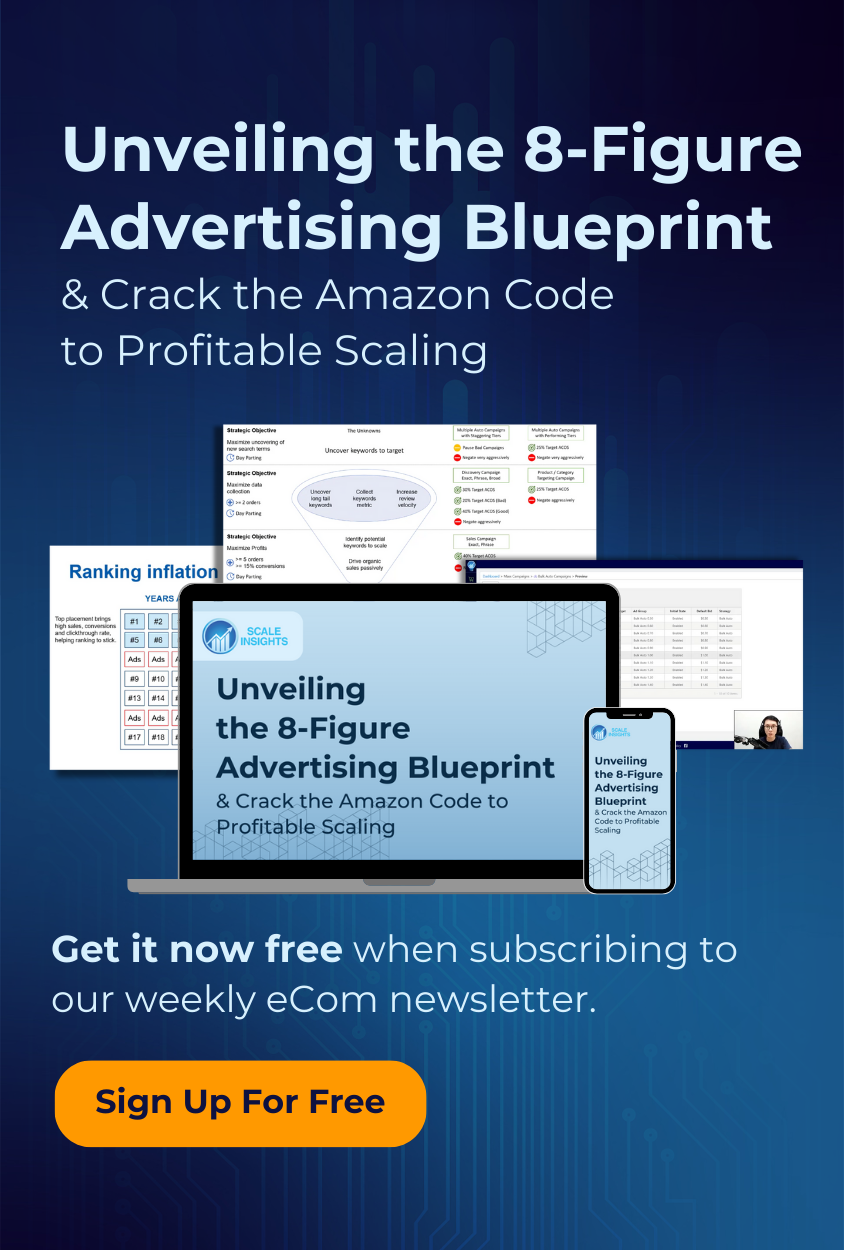Amazon's Fulfillment by Amazon (FBA) service is a widely acknowledged platform that has opened doors to e-commerce for many individuals and businesses. The selling process on Amazon through FBA is not as complex as it seems.
Whether you are a novice or an expert in the e-commerce industry, Amazon FBA has something to offer. In this article, we'll explore how you can sell on Amazon FBA and successfully build your own Amazon business.
Amazon FBA, or Fulfillment by Amazon, is a service provided by Amazon that allows Amazon sellers to outsource the storage, packing, and shipping of their products to Amazon's fulfillment centers. This business model has made it incredibly easy for people to sell on Amazon, whether a single product or a range of items.
Accessibility Of Amazon FBA For Beginners
For those looking to start selling online, Amazon FBA is an attractive option. The program's ease of use and comprehensive infrastructure allows anyone to start an Amazon FBA business without prior experience. The potential for success is high; many have turned their Amazon FBA efforts into thriving enterprises.
1. Understanding Amazon FBA
Amazon FBA stands for Fulfillment by Amazon. It's a service where you send your products to Amazon's fulfillment center, and they take care of storage, packaging, shipping, and customer service. Essentially, Amazon becomes the backbone of your online retail operation, allowing you to focus on other aspects of your business.
How FBA Works And Its Key Components
-
Send Products to Amazon: You send your inventory to an Amazon fulfillment center.
-
Amazon Stores Your Products: They handle storage in an Amazon warehouse and also conduct inventory management .
-
Customer Orders: Customers order their products on Amazon's platform.
-
Amazon Ships Products: Amazon will handle picking, packing, and shipping products to the customers.
-
Customer Service and Returns: Amazon handles customer service and returns.
Advantages Of Using FBA Over Other Selling Methods
-
Ease of Management: Your logistics are handled by Amazon.
-
Global Reach: Access to Amazon's vast customer base.
-
Trust Factor: Amazon's established reputation builds customer trust.
-
Prime Eligibility: Your products can be eligible for Prime shipping.
2. Setting Up Your Amazon Seller Central Account
Setting up your Amazon Seller Central account is the pivotal first step for newcomers embarking on their journey into the world of Amazon FBA. This user-friendly platform serves as the central hub for managing your Amazon business, allowing you to list products, track orders, and monitor performance. This is how beginners go through the essential process of establishing their Seller Central account, laying the foundation for a successful FBA venture.
-
Visit Amazon Seller Central: Go to Amazon's Seller Central page.
-
Choose Your Seller Central Account Plan: Select between Individual and Professional seller plans.
-
Provide Business Details: Fill in the required business and tax information.
-
List Products: Add the products you want to sell on Amazon.
Different Seller Plans
-
Individual Plan: Suitable for those selling fewer items. No monthly fee; pay-per-item sold.
-
Professional Plan: Ideal for selling at scale. Monthly subscription fee.
Seller Central Features
-
Dashboard Overview: Gain insights into sales, orders, and performance.
-
Inventory Management: Track and manage your inventory levels.
-
Marketing Tools: Utilize advertising and promotional tools to boost sales.
Selling on Amazon FBA is a lucrative opportunity that has attracted many entrepreneurs and small business owners. Whether starting from scratch or expanding your existing Amazon business, the following guide will help you navigate the essential steps in establishing a successful Amazon FBA business.
3. Deciding On Profitable Products To Sell
One of the most pivotal decisions for beginner FBA sellers is selecting profitable products to sell. This initial choice sets the foundation for success in this e-commerce venture. Let’s explore the essential strategies and considerations that novice FBA sellers should keep in mind when embarking on their product selection journey.
Conducting Market Research To Identify High-Demand Products
Understanding what products are in demand is crucial when you sell on Amazon. Conducting market research allows you to identify opportunities and minimize risks. There are various tools and techniques that Amazon sellers can utilize:
-
Amazon's Best Sellers Rank (BSR): A significant indicator of product popularity. Analyzing products within the top BSR can guide you toward profitable niches.
-
Product Research Tools: Utilize tools like Jungle Scout or Helium 10 to analyze market trends, sales volumes, and customer interests.
Analyzing Competition And Choosing A Niche Market
A saturated market can hinder your ability to start selling successfully. Careful analysis of competitors and choosing a niche market with less competition but enough demand is vital.
-
Competitor Analysis: Evaluate your competitors' strengths, weaknesses, and marketing strategies.
-
Niche Selection: Selecting a specialized area with enough customer interest ensures a more targeted and less competitive environment for your Amazon FBA business.
4. Sourcing Products And Inventory Management
Finding your way around the world of Amazon FBA as a beginner requires a solid grasp of key fundamentals. At the core of a successful FBA venture lies the critical aspect of sourcing products and mastering inventory management.
Understanding how to select the right products, finding reliable suppliers, efficiently managing your inventory, and your overall business model can make or break your Amazon FBA business. Here are some popular methods:
-
Wholesale: Purchase products in bulk from manufacturers and sell at a markup.
-
Private Label: Create your branded version of existing products.
-
Retail Arbitrage: Buy products from retail stores at a discount and sell for profit on Amazon.
Tips On Finding Reliable Suppliers And Negotiating Deals
Finding reputable suppliers is crucial for a thriving Amazon business.
-
Research Suppliers: Use platforms like Alibaba or attend trade shows. Be sure to talk to multiple sellers and look for for pricing and product customizations options for new product ideas.
-
Negotiate Deals: Be clear about terms, pricing, and quality expectations. Always get agreements in writing.
-
Sample Orders: Test quality before committing to bulk orders. If you don't like the product, then you'd probably won't have the drive to sell it.
Inventory Management Strategies To Avoid Stockouts And Overstocking
Effective inventory management is vital for Amazon sellers.
-
Automated Tools: Utilize Amazon's inventory management system or third-party tools.
-
Regular Monitoring: Regularly check stock levels to ensure a consistent supply.
-
Demand Forecasting: Predict future demand to avoid overstocking or stockouts, both detrimental to your Amazon FBA business.
5. Optimizing Product Listings For Maximum Visibility
One of the foundational keys to success every beginner FBA seller needs to master lies in the art of optimizing product listings. It's the digital storefront that beckons potential customers, and mastering this craft is essential for beginners aiming to stand out and thrive. We'll explore proven strategies and tips to enhance your product listings, ultimately driving maximum visibility and sales on the Amazon platform.
Crafting Compelling And Keyword-Rich Product Titles
Your product titles must include relevant keywords to ensure visibility.
-
Use Relevant Keywords: Include essential keywords related to your product to improve search rankings.
-
Be Descriptive: A clear, concise title helps customers understand your product at a glance.
Writing Engaging Product Descriptions And Bullet Points
A well-written description engages customers and highlights key features.
-
Emphasize Benefits: Focus on how the product benefits the customer.
-
Use Bullet Points: Break down features into easy-to-read bullet points for better readability.
Utilizing High-Quality Images And A+ Content To Enhance Listings
Visuals play an essential role in a customer's decision-making process.
-
High-Quality Images: Provide clear, high-resolution images from various angles.
-
A+ Content: Leverage Amazon's A+ Content feature to include videos, comparison charts, and more to enrich the product listing.
6. Winning The Buy Box And Pricing Strategies
One of the most critical facets to master early on is the art of "Winning the Buy Box" and implementing effective pricing strategies. Why is this paramount for beginners, you ask? Simply put, it's the gateway to success in the fiercely competitive landscape of online retail. We’ll unravel the significance of this pivotal aspect, guiding beginners on how to secure their place in the Buy Box and set pricing strategies that can make their FBA journey not just profitable but also sustainable and thriving.
Understanding The Importance Of The Buy Box For Sales
The Buy Box can be found on the right side of an Amazon product detail page. Customers may click on it to add the product to their cart. Having your offer in the Buy Box means customers are more likely to purchase from you, as this is the default option chosen when someone clicks "Add to Cart."
Factors Influencing Buy Box Ownership And How To Win It
The ownership of the Buy Box is not permanent. It can be influenced by various factors. Here's how to win it:
-
Price Competitiveness: Having a competitive price can make you the preferred Amazon seller. However, this doesn't mean you have to be the cheapest.
-
Availability: Stock availability plays a significant role. Amazon prefers sellers who can quickly fulfill orders.
-
Customer Service Metrics: Your Amazon seller account's performance metrics, like order defect rate, play a part in winning the Buy Box.
-
Shipping Performance: Amazon FBA sellers usually have an advantage since Amazon handles fulfillment. This ensures timely and accurate shipping.
-
Relationship with Amazon: Sellers using Amazon FBA business and enrolled in programs like Prime are generally favored.
Pricing Strategies For Competitive Advantage Without Sacrificing Profitability
-
Dynamic Pricing: Automatically adjust prices based on the Amazon business competitive landscape.
-
Bundle Pricing: Offer products in a bundle to provide value, making it difficult for competitors to compare prices directly.
-
Psychological Pricing: Pricing products at $9.99 instead of $10.00 can enhance the perception of value.
-
Value-Based Pricing: Understand what your customers value and price accordingly to maintain profitability while remaining competitive.
7. Fulfillment And Shipping
As a beginner, you might find some difficulties when it comes to the complex web of logistics and delivery. In the context of Amazon, Fulfillment by Amazon (FBA) is a game-changing service that can simplify the process significantly. Here are some helpful tips that can give you a solid foundation to kickstart your online selling journey.
Labeling And Packaging Requirements For FBA Shipments
To sell on Amazon through the FBA program, there are specific labeling and packaging requirements:
-
Barcodes: Each item must have a scannable barcode.
-
Packaging: Products must be packaged following Amazon's guidelines to prevent damage during shipping.
-
Labels: Specific labels like 'Fragile' or 'This Side Up' must be used where applicable.
Tracking And Managing Shipments Within Seller Central
Amazon's Seller Central provides tools to track and manage your shipments. When you start selling, you can monitor the shipping status, reconcile shipments, and ensure timely delivery. It's vital to familiarize yourself with these tools to maintain a smooth Amazon FBA business operation.
8. Providing Excellent Customer Service
Exceptional customer service is a cornerstone of a successful Amazon business. Meeting customer expectations is a great way to get positive reviews, repeat business, and a higher ranking on the platform.
Handling Customer Inquiries, Feedback, And Returns Professionally
-
Quick Response: Answer customer inquiries promptly.
-
Address Feedback: Acknowledge and address negative feedback professionally.
-
Smooth Returns Process: A clear and easy return process enhances customer satisfaction.
How Positive Reviews Can Boost Sales And Ranking
Positive reviews can significantly influence buying decisions. Always try to encourage satisfied customers to leave a positive review. This can boost your product's ranking on search results, enhance the credibility of your Amazon seller account, and ultimately drive more traffic.
By focusing on customer satisfaction, implementing strategic pricing, and efficiently managing the fulfillment and shipping processes, you can build quite a successful and profitable Amazon FBA business. The key is to keep learning, adapt to changes, and put the customer first to thrive in the competitive world of selling on Amazon.
9. Marketing And Promotions On Amazon
To effectively sell on Amazon, marketing plays a pivotal role in showcasing your products to potential customers. Amazon provides various advertising solutions, including Amazon Sponsored Products, which allow Amazon sellers to promote their products alongside search results.
By creating an Amazon seller account, you can tailor your ad campaigns to target specific keywords related to your products, reaching a more targeted audience. Investing in these advertising options is essential for growing your Amazon business, as they increase product visibility and drive more traffic to your Amazon for listings.
Running Effective Promotions And Deals To Attract Customers
Offering promotions and deals is an excellent way to attract new customers and incentivize repeat purchases. Amazon sellers can run time-limited discounts or bundle offers through their Amazon seller account. Coupling these with the strategic use of Amazon's advertising tools allows you to create highly engaging promotions that drive sales.
Consider seasonal offers, clearance sales, or exclusive discounts for Amazon Prime members. These can create excitement around your Amazon FBA business and motivate buyers to purchase.
Leveraging Social Media And External Marketing Channels To Drive Traffic
Aside from Amazon's internal tools, social media, and other external marketing channels can significantly boost your reach. Collaborate with influencers, run targeted social media ads, or use email marketing to reach potential customers outside Amazon.
Integrating your Amazon FBA with these external channels creates a unified marketing strategy that taps into a broader audience. Remember, the more people you can drive to your Amazon business, the higher the chances of conversion.
10. Monitoring Performance And Making Data-Driven Decisions
Understanding the intricate art of monitoring performance and making astute data-driven decisions is crucial to the success of any business, not just for Amazon FBA sellers. We will lay out crucial strategies and insights that every novice seller needs in order to harness data effectively, steering their Amazon ventures towards profitability and growth.
Utilizing Amazon's Analytics Tools To Track Sales Performance
Monitoring and analyzing performance is key to growing your Amazon FBA business. Through your Amazon seller account, Amazon offers robust analytics tools that allow you to track multiple metrics such as sales performance, click-through rates, and much more.
You may also use third-party tools such as Scale Insights' rule-based Amazon PPC platform that are designed to help you analyze, automate and scale your Amazon PPC campaigns with confidence.
With its powerful automation features, you can effortlessly scale your campaigns, maximizing your ROI and freeing up resources to focus on other critical areas of your business. Trust in Scale Insights to navigate the complexities of Amazon PPC with precision and ease.
Understanding these metrics enables you to see what's working and where improvements can be made. Regularly monitoring these numbers can make your selling on Amazon experience more productive and profitable.
Understanding Key Metrics Like Conversion Rate, Sessions, And Revenue
As a beginner, you might be overwhelmed with the number of things you need to keep track of. However, these are essential to your FBA business as it will tell you the “story” of your Amazon store.
Key metrics such as conversion rate, sessions, and revenue provide valuable insights into your Amazon business performance. Conversion rate reflects how many visitors are making purchases, while sessions show the overall traffic to your Amazon listings.
Analyzing these numbers helps identify areas where you can optimize to increase conversions. They act as a compass, guiding your efforts to where they'll impact your selling on Amazon journey.
Making Informed Decisions Based On Data To Improve Sales
As a beginner in Amazon FBA, every move you make should add value to your store. That is, you can’t make any rash decision without thinking how it will affect your business in the long run. That is why you should always go back to the data. Data-driven decisions enable you to refine your strategies and make informed choices that align with your Amazon business goals. Use Amazon's analytics to A/B test different pricing strategies, marketing messages, or product features.
Using real data, you can confidently adjust your Amazon FBA business, knowing that your decisions are backed by concrete evidence. This systematic approach takes the guesswork out of selling on Amazon. It allows you to build a more resilient and adaptive business.
11. Scaling Your Amazon FBA Business
Strategies For Expanding Product Offerings And Entering New Markets
As your Amazon FBA business grows, expansion becomes a natural next step. Diversifying product offerings or entering new markets can propel your business to heights.
Research potential markets carefully and consider how existing products can be adapted to meet different customer needs. Expanding your Amazon business doesn't mean starting from scratch; often, it's about creatively leveraging what you already have.
Hiring Virtual Assistants Or Outsourcing Tasks To Streamline Operations
As you continue to sell on Amazon and your operations expand, efficiency becomes critical. Hiring virtual assistants or outsourcing certain tasks can free up your time, allowing you to focus on more strategic areas of your Amazon for business.
Whether it's customer service, inventory management, or digital marketing, finding the right partners can lead to smoother operations and help you scale your selling on Amazon efforts.
Preparing For Peak Seasons And Managing Growth
Peak seasons like the holidays can lead to a significant influx in sales for Amazon sellers. Preparing in advance by stocking up inventory, optimizing listings, and planning marketing strategies can ensure you maximize these opportunities.
Conversely, managing growth means being mindful of not overextending your resources. It's about balancing seizing opportunities and maintaining a sustainable Amazon FBA business model.
Monitoring trends, staying flexible, and using analytics to drive decisions can help you navigate these peak times effectively, ensuring you continue growing your Amazon business without sacrificing stability or quality.
12. Avoiding Common Pitfalls And Challenges
Using Amazon FBA as a newcomer can be both promising and complex. As you continue to build your FBA business, it's crucial to be aware of the potential pitfalls and challenges that lie ahead. Let’s explore key insights to help you steer clear of common stumbling blocks, ensuring a smoother and more successful start to your Amazon FBA venture.
Lack of Understanding of the Amazon FBA Business Model: New Amazon sellers often misunderstand the Fulfillment by Amazon model. It's essential to take your time to learn the ecosystem, and fully understand how Amazon FBA works, as it can significantly influence your sales strategy.
Inaccurate Product Listings: Starting an Amazon seller account and listing products requires attention to detail. Inaccurate descriptions or images can lead to customer dissatisfaction. It will be a letdown for a customer to read one thing online and receive an inaccurate item in person. This could lead to negative feedback, and you wouldn’t want that, especially for a new business.
Inventory Management Challenges: Managing stock effectively is a common challenge in the Amazon FBA business. Utilizing FBA tools or hiring experts can help in efficient inventory management.
Staying Compliant With Amazon's Policies And Guidelines
Being on Amazon FBA as a beginner requires more than just understanding the mechanics of the fulfillment process. It also involves adhering to Amazon's stringent policies and guidelines. In this very crucial section, we'll delve into the essential aspects of staying compliant with Amazon's rules, ensuring your FBA journey is not only profitable but also compliant with the platform's regulations.
Tax and Legal Regulations: Understanding and adhering to tax laws and regulations is vital when you sell on Amazon. Consulting with a tax professional ensures that your Amazon business complies.
Dealing With Negative Feedback And Customer Disputes
Customer Feedback Management: Negative feedback can affect an Amazon FBA business adversely. Responding promptly and professionally helps maintain a positive reputation. In some cases you may want to consider providing discounts, refunds, or other promotional material.
Handling Returns and Refunds: Effective policies to handle returns and refunds help reduce disputes and maintain customer trust. Don’t make it too difficult for customers to navigate returns and refunds. That doesn’t mean to say that you shouldn’t verify, but be sure to respond to inquiries promptly and professionally.
Conclusion On Being An Amazon FBA seller
Starting and running an Amazon FBA business offers a unique opportunity for sellers to leverage Amazon's extensive fulfillment network, but it requires careful planning and awareness of common challenges.
New sellers are encouraged to embark on this exciting journey, recognizing that success and growth come through dedication, adherence to Amazon's FBA guidelines, and continuous learning about the intricacies of the program.
The potential for thriving within the Amazon FBA landscape is vast, and with the right approach, utilizing Fulfillment by Amazon can become a profitable and rewarding venture.
Even if you are a beginner, hit the ground running with Scale Insights! This dynamic, rule-based Amazon PPC platform will help you analyse, automate and scale your Amazon PPC campaigns with confidence. Start with a 30-day free trial, no credit card required!
Contact us today and start building your own business!
Frequently Asked Questions About Being A Beginner Amazon FBA Seller
Why do I need FBA Tools for my Amazon business?
FBA Tools lets Amazon sellers monitor market trends and optimize product listings for visibility, inventory management, and sales. These solutions boost online business profits by offering you an edge.
Can I Sell Internationally With Amazon FBA?
Amazon FBA offers global selling options, allowing you to expand your market reach.
How Do I Deal With Counterfeit Claims?
Amazon has stringent policies against counterfeiting. If you face a counterfeit claim, providing detailed documentation and cooperating with Amazon's investigation is essential.
How Much Does It Cost To Start An Amazon FBA Business?
The cost varies depending on factors like inventory, shipping, and advertising. Still, you can start with as low as a few hundred dollars.
What If My Amazon Seller Account Gets Suspended?
In case of a suspended account, you can appeal the decision by providing the necessary information and following Amazon's reinstatement process.
Can I Sell Used Items On Amazon?
Yes, you can sell used items, but they must be listed accordingly, and the condition must be accurately described.
Is It Necessary To Have A Business License To Sell On Amazon?
Requirements vary by jurisdiction and the type of products you're selling. It's best to consult with a legal professional to understand the specific requirements for your Amazon FBA business.



 Scale Insights Team
Scale Insights Team


